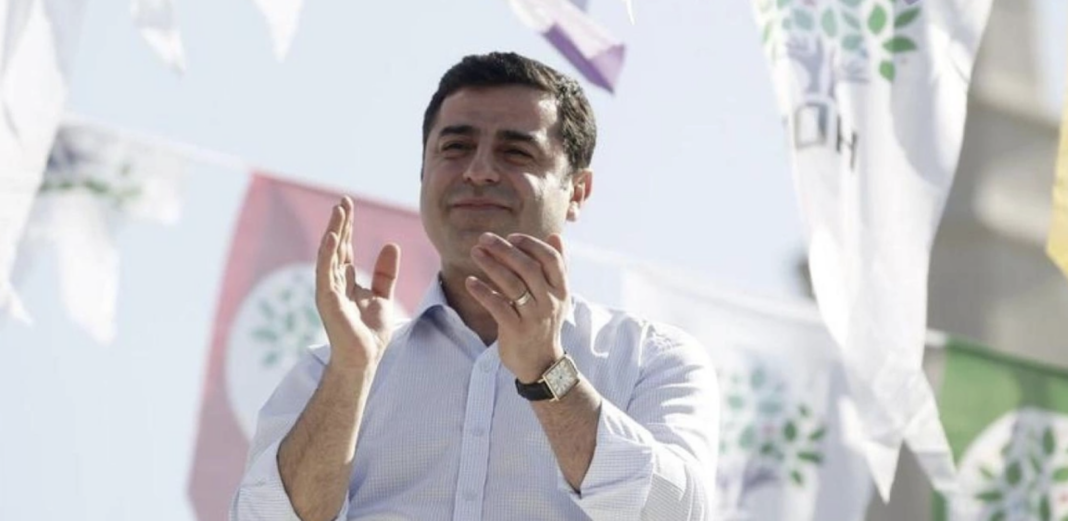Jailed Kurdish politician Selahattin Demirtaş has refused to see visitors in prison in protest of the “insulting” body search protocol the prison has recently begun to implement on him as per the Justice Ministry’s instruction, announced lawyer Ramazan Demir.
Former co-chair of the pro-Kurdish Peoples’ Democratic Party (HDP) and renowned politician Selahattin Demirtaş will not accept visitors in prison due to the “insulting” body search the prison has recently implemented on the Kurdish politician, his lawyer Ramazan Demir on March 13 announced.
Demir stated that the Justice Ministry instructed the Edirne prison to remove and search Demirtaş’s shoes in front of security cameras each time he left and re-entered his solitary cell to accept visitors.
“Mr. Demirtaş states he will never accept this practice he describes as ‘insulting bullying,’ and refuses to accept family, lawyer, and MP visits from now on,” Demir announced through his social media account.
He added that the Peoples’ Equality and Democracy (DEM) Party officials were notified, and would request the Justice Ministry to revoke this “insulting imposition” at once.
DEM Party issued a statement “rejecting the insulting and lawless imposition.” The party held that the Justice Ministry and government were responsible for the increasing pressure against their imprisoned members, which aimed to hamper their local election campaigns.
“As DEM Party, we are conducting a campaign that involves our elected deputies and imprisoned friends. The government, experiencing political incapacity, is resorting to all forms of lawlessness,” read the statement.
DEM Party concluded the statement with a request to end all inhuman treatment of Demirtaş and other political prisoners.
Demirtaş did not apply to attend his father’s funeral in January 2024, saying he would not want anything from the government after the mistreatment of other jailed Kurdish politicians during funerals.
Demirtaş has been in prison since 2016. He faces hundreds of years in prison on charges related to the Kurdistan Workers’ Party (PKK) despite a previous European Court of Human Rights (ECHR) ruling that he was imprisoned on political grounds and should be released immediately.

